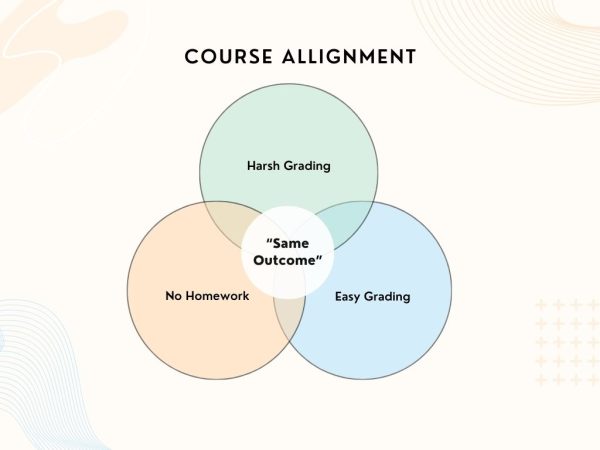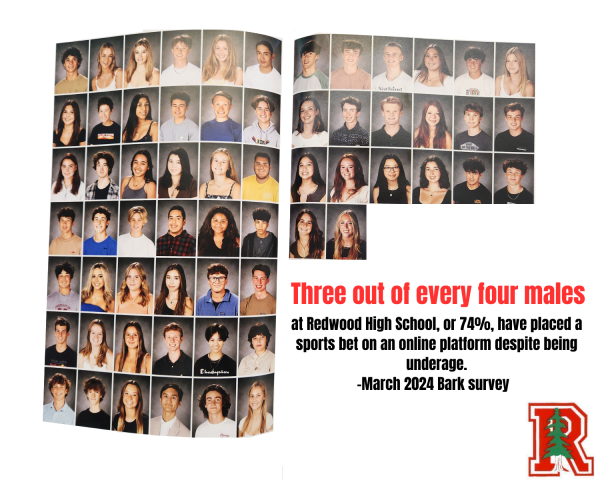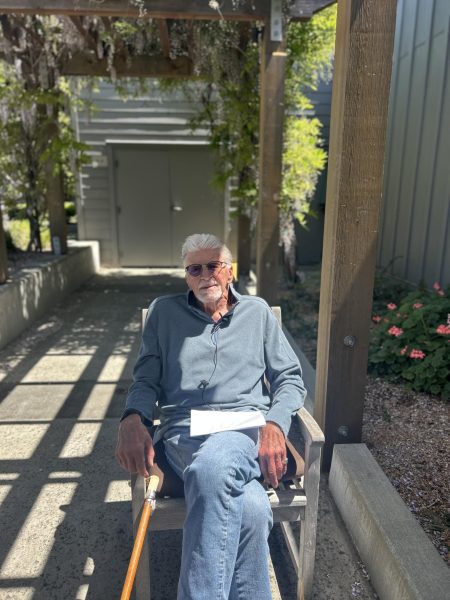Coasts divided: Redwood sees promise in AP African American Studies following Florida shut down
March 24, 2023
Not even three months in, 2023 has been filled with political turmoil. While politicians from the left continue their battle for gun reform, conservative politicians have focused on an entirely different debate in the classroom.
Following its first semester of testing in the U.S., Florida Governor Ron Desantis has threatened to ban the Advanced Placement African American Studies (APAAS) curriculum statewide due to its “woke indoctrination of students.”
Just a few days later, the College Board released a unit-by-unit breakdown of the updated APAAS course excluding many of the “controversial” and modern topics it originally incorporated. Contemporary aspects of the curriculum, such as lessons that cover Black Lives Matter and Black Queer studies, were omitted.

Some of these topics considered more “woke” were offered as optional areas of study for an end-of-course research project. Despite its release timeline, the College Board claims these adjustments were not made in response to Governor Desantis but rather their independent doing.
Sara Adams, a Florida resident and high school senior, finds that despite overwhelming right-wing attitudes in the government, most state residents she knows are not supportive of curriculum interference.
“What started this was [the debate over] Critical Race Theory a couple of years ago, [and] then the ‘Don’t Say Gay’ bill got passed, which was more of Desantis pushing his agenda onto schools. Now with APAAS, it just seems that [Desantis] is in a position of power where, if someone tries to defy his point of view, his automatic decision is to ban it,” Adams said.
Although Adams plans to attend college out of state to avoid educational restrictions, she worries about the students behind her.
“In Florida, they’re already getting rid of teaching [about] the Trail of Tears. Segregation and most of the Civil War is just taught as states’ rights versus federal rights. [And now] you’re only going to be able to learn about certain people. You can maybe learn about Martin Luther King Jr., but you’ll never be able to learn about a figure like Malcolm X,” Adams said. “I [also] don’t think it just affects Black issues. It affects all issues like Native American [removal] or the treatment of Japanese Americans in World War II. Anything that contradicts white people and or makes white people look bad will be erased.”

Opposed to revisionist teaching, Redwood Government and AP U.S. History teacher Lindsey Kornfeld feels the updated outline released by College Board was unjustly censored.
“As a teacher, it’s my job to tell people what happened, and if what happened makes people uncomfortable, then shouldn’t we learn about it more?” Kornfeld said. “Someone in one of my Government classes said something like, ‘Why only learn the good parts about your country? If you truly love it, you need to fix the parts that are bad,’ and that was a perfect way to put into words how I feel.”
For Kornfeld, a high school education is about more than facts and memorization — it is about the skills one builds by cooperating and engaging with others in a learning environment, particularly in the debatable topics that the College Board excluded from the updated version of the APAAS course outline.
“If we [want students to have] an understanding of how to be a productive, forward-moving citizen, we need a well-rounded view of what actually happened,” Kornfeld said. “If you walk out of a school without that, how does the country continue to move forward and make progress?”
Kornfeld disputes Governor Desantis’ allegations that the curriculum has any intentional malice and sees numerous benefits to the program, one of which being its research component.
Unlike most other AP history courses, the APAAS score from the College Board consists of both a 1200-1500 word research paper regarding a student’s topic of choice relating to the course as well as a sit-down exam with 60 multiple choice questions and four free response questions. The framework gives a variety of topics to research such as Black conservatism and the legacy of redlining.
“There is no reason this [curriculum] is controversial. This is a factual history class, and these are things that actually happened. What the Florida Governor is afraid of is white kids feeling like they’re at fault for this, but that’s not how the College Board has it written. It’s written like AP U.S. History, [but] it gives you topics that you wouldn’t [normally] be inclined to write about or to teach about if you were in a school that was less open to these ideas,” Kornfeld said.
At a district level, Kornfeld understands there is a push to further diversity in curriculum, and she acknowledges that adopting APAAS could be an important step towards that goal. Redwood Assistant Principal and AP Coordinator Lisa Kemp shares a similar view about the future implementation of APAAS topics. For a new AP course to be approved, the proposal must go through the Curriculum Council and the District Board.
“We’re not Florida. This course would not be rejected because of the content,” Kemp said. “In fact, one of the things that would support its adoption is that, as of the 2025-2026 school year, the freshman curriculum will be Ethnic Studies instead of World Cultures and Social Issues to comply with a state mandate … It’d be cool for upperclassmen to revisit some of those concepts they get introduced to in freshman year in Ethnic Studies and dive deeper than the [introductory] course would offer.”
However, the District Board is typically skeptical about funding new electives without confirmation that students are eager to enroll, which Kemp believes could go either way. She finds more students enroll in AP science or math courses than in AP social studies courses but acknowledges the allure of the unique specificity of APAAS.
Kornfeld also considers the distinctiveness of the course a positive attribute.
“There’s always value in adopting something that’s focused. If we’re looking at the history department as a whole, minus our electives, they’re broad-spectrum courses, so you’re not diving into African American movements in the same way,” Kornfeld said. “There’s always value in more learning.”























